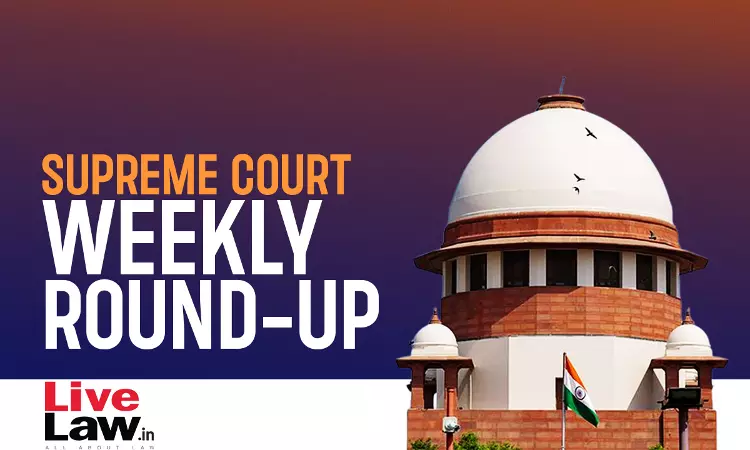- Home
- /
- Top Stories
- /
- Supreme Court Weekly...
Supreme Court Weekly Round-Up(23rd-29th October)
Suraj Parmar
2 Nov 2023 10:21 AM IST
Nominal Index [Citations: 2023 LiveLaw (SC) 914-933]Tottempudi Salalith v State Bank Of India 2023 LiveLaw (SC) 914M/S Unibros v. All India Radio, 2023 LiveLaw (SC) 918Debasish Paul v. Amal Boral, 2023 LiveLaw (SC) 919Mumtaz Yarud Dowla Waqf v. M/S Badam Balakrishna Hotel Pvt Ltd. 2023 LiveLaw (SC) 920Manmohan Gopal v. State Of Chhattisgarh, 2023 LiveLaw (SC) 921Ambalal Parihar v. State...
Next Story



